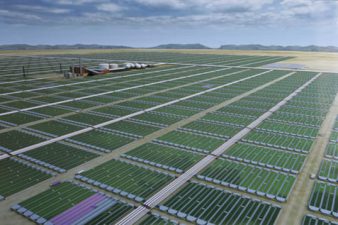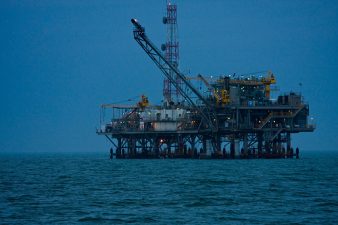
8th annual Health, Safety and Environment Forum in Energy happens in Doha from October 8 -10
Accidents associated with oil and gas operations endanger human life, damage adjacent communities and threaten the environment. The shockwaves of these accidents affect the business involved and its workers, and extend far beyond. Millions of dollars are spent annually on restoration.
Most of these incidents can be chalked up to complacence. Many could be avoided by changing industry practices and applying stringent regulations. But repetitive tragedies demonstrate that the energy sector hasn’t fully absorbed past lessons. A summit in Qatar aims to mitigate these risks for oil-producing nations.
According to ABB’s North America Vice President on Safety and Health, Darryl Hill, “lessons learned” are not integrated into industry safety and health management systems despite damning public exposure.
“The safety and health profession do well in identifying causal factors, but we must do better to sustain improved safety culture awareness throughout the oil and gas industry,” Hill said in an interview with pr-inside.
One of the world’s largest engineering companies and conglomerates, ABB operates in over 100 countries and employs 145,000 employees. Realizing radical safety improvements within their own empire will give significant momentum to industry-wide change.
“A paradigm shift is needed in organizational thinking to sustain HSE performance in the energy sector,” Hill told TradeArabia.
So, the Doha forum, supported by ABB and under the patronage of Dr. Mohammed Bin Saleh Al-Sada, Minister of Energy and Chairman of Qatar Petroleum, will lay out a roadmap for achieving that change.
The forum is named “Refining the Vision: Turning Commitment into Reality”.
Over 350 delegates involved in HSE (health, safety and environmental) across the energy sector will advocate a pivotal shift in organizational cultures to prevent incidents such as last year’s oil spill across the Gulf of Mexico. Particular focus will be on environmentally and socially sustainable deployment of oil and gas processes. The conference will spotlight the latest developments and technological solutions essential to ensure effective and sustainable environmental practices in the energy sector. It’s about time.
Despite monstrous industrial disasters such as the Fukushima nuclear melt-down and Deepwater Horizon oil rig fire, preventative recommendations are not being fully integrated into long-term HSE management systems. Deepwater Horizon was the offshore oil rig that exploded in the Mexican Gulf in 2010, killing 11 crewmen and incalculable wildlife, causing the largest marine oil spill in petroleum industry history.
“Improving safety culture and preventing catastrophic events requires discipline and fortitude. Too often organizations improve their HSE performance, and then become complacent, resulting in a tragic incident,” said Hill.
“The main challenge in oil & gas organizations is that management is confronted with competing interests such as safety, productivity, schedule and quality,” Hill added. “Many times safety is not valued, thus it loses its focus, even when organizations are aware of why past catastrophes have occurred.”
Olu Adeolu, head of Safety at the Institution of Occupational Safety and Health (IOSH) in Qatar, who will also speak at the Forum, added that the industry is learning from past mistakes, but at a gradual and inconsistent pace.
“HSE standards continue to vary significantly from one company to the other, and also from one oil & gas producing country to the other,” said Adeolu. “There tends to be a flurry of activity after a major incident but once media attention moves on, impetus for change seems to reduce accordingly.”
This new approach demands that the total organization be involved in continually improving the work system. Industry managers must sustain and reward incident-free workplaces; leaders must inspire personal commitment and action from each employee. Safety and health professionals must keep incident “lessons learned” at a high level in the organization to prevent re-occurrence. Communication and education are key.
Developing a culture centered on HSE, especially in the oil and gas sector, is fundamental to business growth. Those that don’t embrace this principle risk sanctions by regulatory agencies, communities, peers, news media, and the public. Industry self-improvement is important, but clear regulations and proper enforcement by environmental and safety agencies is imperative, so that companies that fail to comply will lose their licenses and permits to operate.
“In today’s economic climate, HSE professionals have to be doggedly persistent in stating their case for investment in HSE in financial and business terms that organizations understand,” said Adeolu, “They also need to be more systematic in identifying and demonstrating where real HSE and business risks lie rather than focusing on simple or headline-catching initiatives.”
The forum is being supported from key industry players, securing speakers who are experts in the field including Saad Al Kubaisi of Qatar Petroleum, Ali Al Rahbi of Dolphin Energy, Dr. Qudsia Huda of World Health Organization and Richard Birrer of Saudi Aramco Medical Services Organization, among others.
Image of oil rigs and tanker from Shutterstock



